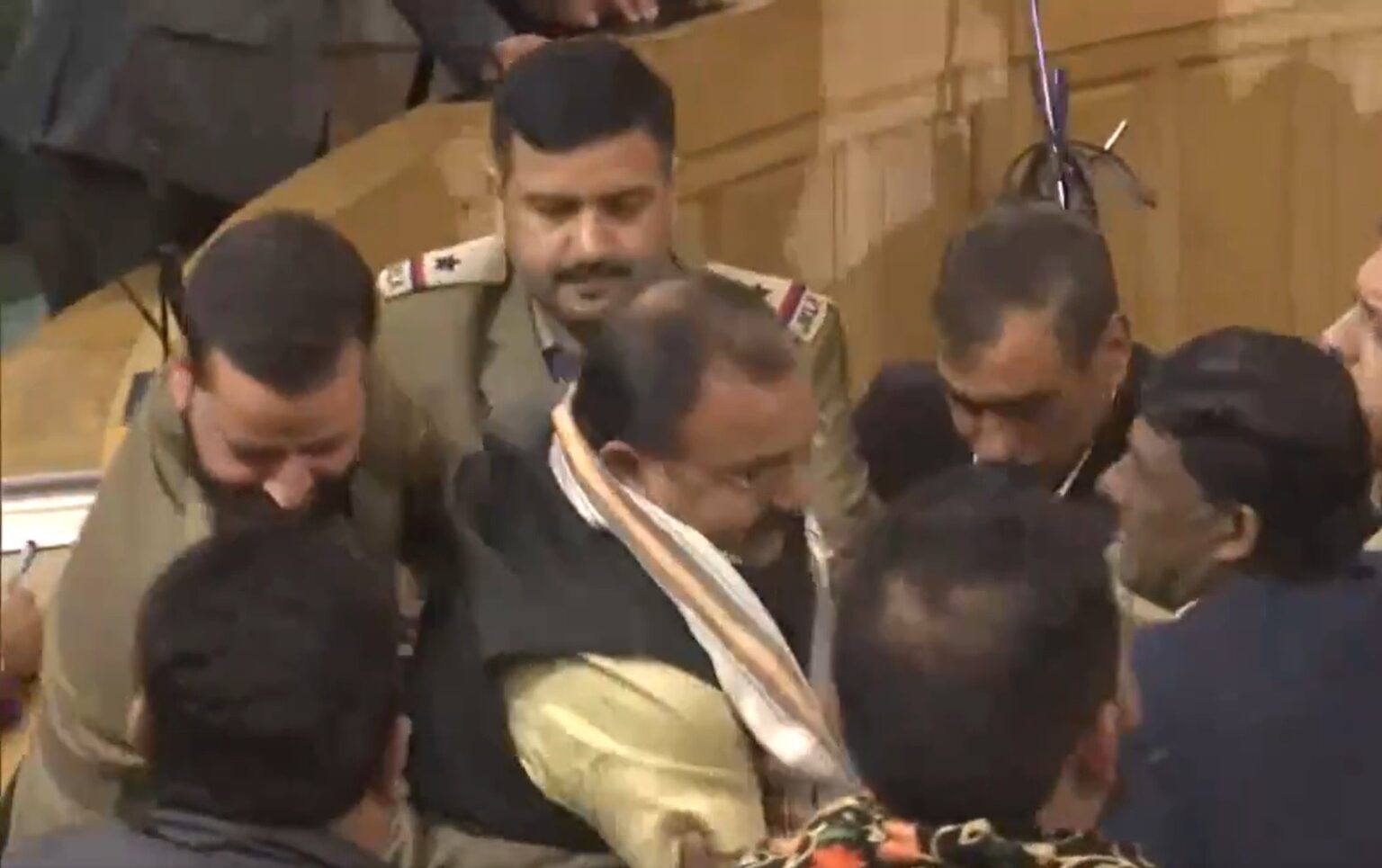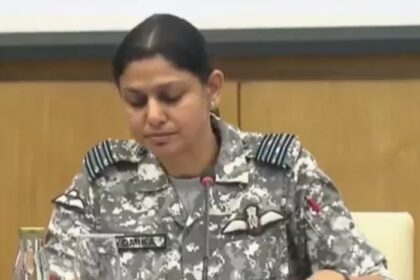Avinash Azad
Members of the ruling National Conference (NC) alliance and various opposition leaders united to call for the restoration of the region’s special status, while BJP legislators firmly resisted, intensifying the tense atmosphere.
A contentious debate over the restoration of Jammu and Kashmir’s special status under Articles 370 and 35A led to heated exchanges on the fourth day of the ongoing assembly session in Srinagar.
Click here to join WhatsApp channel
Tensions came to a head as Speaker Abdul Rahim Rather ordered the expulsion of BJP MLAs from the Assembly chamber following prolonged disruptions. The situation quickly escalated as opposition members protested, leading to an unexpected brawl on the Assembly floor. This confrontation exposed deep-seated divisions over J&K’s political future, with both sides refusing to yield ground on an issue central to the region’s identity.
The NC-led government initially moved a resolution advocating for dialogue to restore Jammu and Kashmir’s previous status. However, this resolution faced immediate criticism for lacking specificity. PDP legislator Waheed-ur-Rehman Parra criticized the NC’s approach, describing the resolution as “vague” and filled with “ambiguity.”
Parra submitted an alternative proposal, condemning the abrogation of Articles 370 and 35A and calling for a complete restoration of J&K’s special status in its original form. “Yesterday’s resolution only called for dialogue, without condemning the August 5, 2019 decision. The public sentiment demands a full restoration, not partial measures,” Parra stated passionately, urging the Assembly to take an unambiguous stand.
Some Assembly members echoed Parra’s sentiments, arguing that the NC’s proposal did not adequately address the people’s demands. Jammu and Kashmir People’s Conference (JKPC) leader Sajad Lone criticized the NC, questioning the sincerity of their proposal.
“We tabled a resolution calling for a complete rollback of Article 370 and 35A, and the nullification of the reorganization act. Either the NC supports us or presents a similar resolution with clear terms,” Lone told reporters. He went on to accuse both the NC and BJP of engaging in a “fixed match,” suggesting that both parties were posturing to play to their respective bases rather than genuinely supporting J&K’s autonomy.
NC MLA Tanvir Sadiq rebuffed the criticisms, asserting that the NC stood united and had presented a strong, clear stance. Sadiq hinted that detractors, who narrowly won their seats, were stirring unnecessary drama. “Some individuals who barely scraped through the elections with 100-200 votes now believe they’re leading a revolution! J&K needs strong voices, not empty echoes,” he remarked, sparking further arguments from the opposition.
The Assembly session took a dramatic turn when Khursheed Sheikh, brother of detained leader Er Rashid, entered the well of the House holding a banner demanding the full restoration of Articles 370 and 35A and the release of all political prisoners. Sheikh’s protest provoked a strong response from BJP members, who heckled him until he was removed by marshals. Witnessing the incident, PDP MLA Waheed Parra and JKPC’s Sajad Lone joined Sheikh, intensifying the disruption and further energizing the opposition’s stance.
Throughout the session, BJP members condemned the NC-led alliance’s resolution, asserting that the abrogation of Article 370 in 2019 was both permanent and irreversible. Labeling the NC’s proposal as a “populist gimmick,” one BJP member argued that the resolution was a superficial attempt to exploit public sentiment for political gains. Despite repeated objections, BJP MLAs were ultimately marshalled out after prolonged clashes with NC and PDP representatives.
Amidst the escalating tensions, Sajjad Shaheen, an NC MLA from Banihal, delivered a scathing critique of the BJP’s role in J&K’s governance. “Enough of deceits, theatrics, and gallery play by BJP. The people of Jammu & Kashmir have suffered for a decade under their misrule. We are resolute in our stand and will resist any attempt to derail J&K from its path to progress,” Shaheen stated firmly. He warned that the public was watching closely and would hold those responsible for the region’s hardships accountable.
The fierce debate surrounding Article 370’s restoration reflects a broader sentiment within Jammu and Kashmir, where many continue to call for the revival of their special constitutional status. For several parties, Articles 370 and 35A represent more than just legal provisions—they symbolize J&K’s unique identity and autonomy within the Indian Union.






